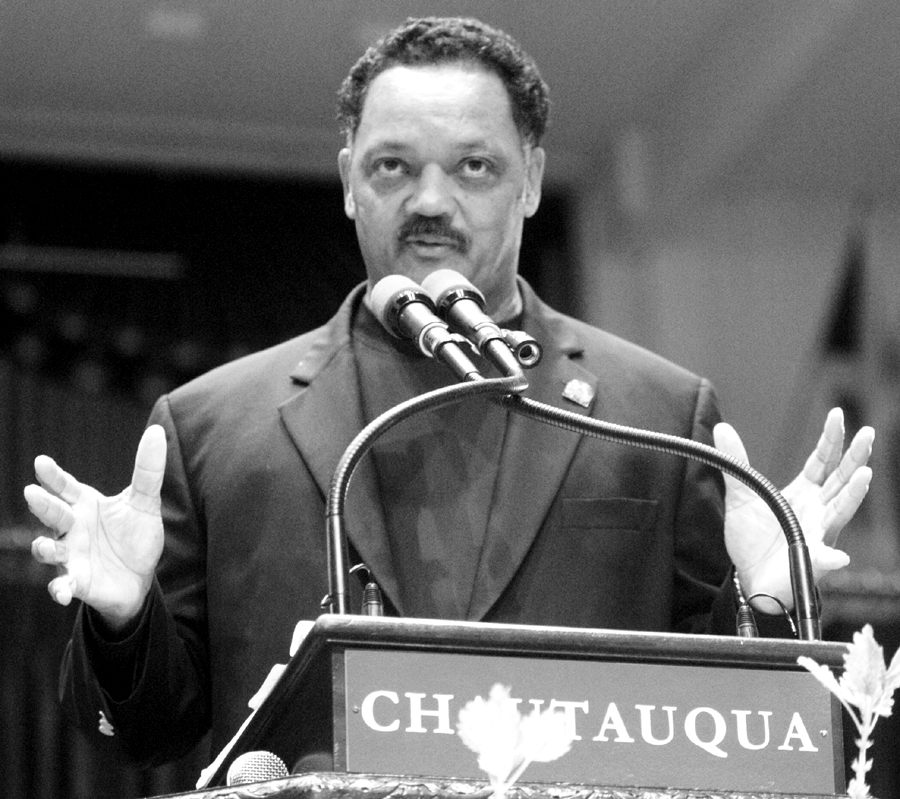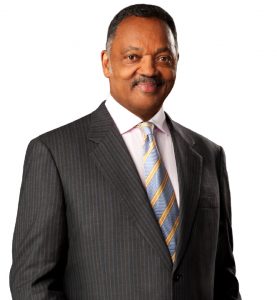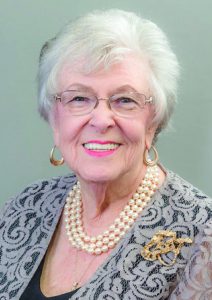
Thus far, the Week Eight morning lecture platform and the Interfaith Lecture Series have explored different issues: “The Forgotten” and a remembrance of Martin Luther King Jr., respectively. Fri. Aug. 17, they converge.
At 10:45 a.m. in the Amphitheater, the Revs. Jesse Jackson and Joan Brown Campbell will join the Rt. Rev. V. Gene Robinson, Chautauqua’s vice president of religion, to close both morning and afternoon themes for Week Eight.

Matt Ewalt, Institution chief of staff, said Jackson and Campbell’s conversation is an “opportunity to bring both the morning and afternoon platforms together in a powerful way.”
“Through the work of Department of Religion leadership — both past and present — we close with the reflections of the Revs. Jesse Jackson and Joan Brown Campbell on King’s legacy and the legacy of the civil rights movement,” Ewalt said.
Both Jackson and Campbell are longtime proponents of social justice and civil rights.
As a student in the 1960s, Jackson rose to prominence as one of the foremost leaders of the civil rights movement, working closely with King on various initiatives. He is the founder and president of Rainbow PUSH Coalition and the recipient of several awards, including the Presidential Medal of Freedom.

Campbell is a former director of religion at Chautauqua. During her tenure, she established key programs within the Department of Religion, including the Abrahamic Program for Young Adults and designating the 2 p.m. religion lectures as the Interfaith Lecture Series. She was the first woman in that position, as well as the first woman to be associate executive director of the Greater Cleveland Council of Churches; executive director of the U.S. office of the World Council of Churches; and the first ordained woman to assume the position of general secretary of the National Council of the Churches of Christ in the United States. Her many awards include the Walter Cronkite Faith and Freedom Award from the Interfaith Alliance.
Robinson, who will moderate today’s discussion, said Jackson and Campbell each bring a different perspective of King’s legacy and can speak to the differing impacts of his work.
“One of the ways we honor Dr. King in this 50th anniversary of his assassination is to connect as personally as we can with both his experience, but also the experience of those around him,” Robinson said.
Robinson said he’s interested in hearing Jackson’s thoughts on not only the legacy of the civil rights movement, but also how modern movements like Black Lives Matter compare to the work King did.
“So where does the movement stand now, and how is it different now?” Robinson said. “We can point to some gains, in terms of an emerging black middle class and African-Americans being named to all kinds of rather grand positions, but going back to our theme — what should we have learned that we didn’t? What did we learn momentarily that we actually forgot?”
Robinson said Campbell will speak to the impact King had on her own life, as well as the “indirect impact” King had on various communities he visited. As pastor of the first white Cleveland church King visited, Campbell witnessed the “enormous effect on that community,” Robinson said.
“Just his presence, just the announcement that he was coming, sent people into a flurry of activity,” Robinson said.
Robinson said an important part of today’s conversation will be a point that has echoed throughout the Week Eight interfaith lectures — King was more than his “I Have a Dream” speech or his “Letter from Birmingham Jail.” To honor the legacy of the man is to “dwell not merely on how Dr. King died, but also on how he lived,” as Jackson wrote in an April opinion piece for The New York Times.
“We owe it to Dr. King — and to our children and grandchildren — to commemorate the man in full,” Jackson wrote in the Times, “a radical, ecumenical, antiwar, pro-immigrant and scholarly champion of the poor who spent much more time marching and going to jail for liberation and justice than he ever spent dreaming about it.”




